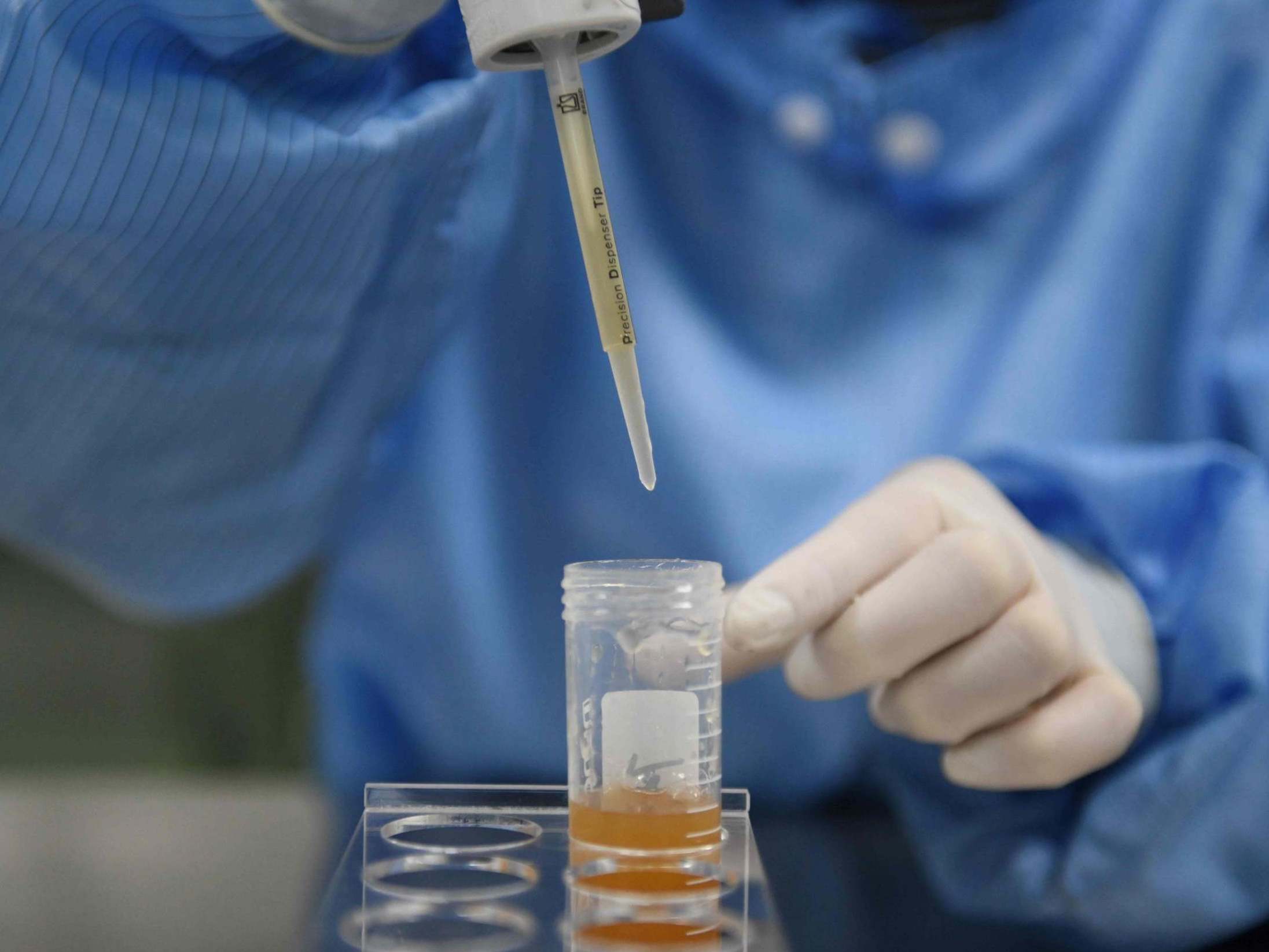Your support helps us to tell the story
From reproductive rights to climate change to Big Tech, The Independent is on the ground when the story is developing. Whether it's investigating the financials of Elon Musk's pro-Trump PAC or producing our latest documentary, 'The A Word', which shines a light on the American women fighting for reproductive rights, we know how important it is to parse out the facts from the messaging.
At such a critical moment in US history, we need reporters on the ground. Your donation allows us to keep sending journalists to speak to both sides of the story.
The Independent is trusted by Americans across the entire political spectrum. And unlike many other quality news outlets, we choose not to lock Americans out of our reporting and analysis with paywalls. We believe quality journalism should be available to everyone, paid for by those who can afford it.
Your support makes all the difference.Chinese researchers have found that coronavirus can persist in men’s semen even after they have begun to recover from the infection, raising the possibility it could be sexually transmitted.
In a small study, samples from 38 male patients who were treated at Shangqiu Municipal Hospital were tested by a team there at the peak of the outbreak in China. Twenty-three patients were in the recovery stage, while 15 were in the acute stage of infection.
The report, published by open-access journal JAMA Network Open, showed about 16 per cent of the men had evidence of Covid-19 in their semen.
The virus was found in the semen of four of the 15 patients who were in the acute stage of infection and in two of the 23 patients who were recovering.
“We found that SARS-CoV-2 can be present in the semen of patients with Covid-19 and SARS-CoV-2 may still be detected in the semen of recovering patients,” said the authors.
“SARS-CoV-2 might be seeded to the male reproductive tract, especially in the presence of systemic local inflammation. Even if the virus cannot replicate in the male reproductive system, it may persist, possibly resulting from the privileged immunity of testes.”
The researchers called for more studies to be conducted on viral detection and semen persistence as sexual transmission “might be a critical part of the prevention of transmission”, particularly because there was evidence of the virus in recovering patients.
“Abstinence or condom use might be considered as preventive means for these patients,” noted the authors.
Independent experts said the findings were interesting but should be viewed with caution and in the context of other small studies that have not detected the virus in sperm.
Allan Pacey, professor of andrology at Sheffield University, said the studies should not be seen as conclusive as there were some technical difficulties in testing semen for viruses, but added “we should not be surprised” if the coronavirus is found in the semen of some men.
He said similar results have been seen with viruses such as Ebola, which has been detected in the semen of men after their recovery from the infection.
Dr James Hotaling, who co-authored an earlier report which found no evidence of the virus in the semen of 34 Chinese men with Covid-19, noted the new study involved much more seriously ill men.
“If a disease like Covid-19 were sexually transmittable, that would have major implications for disease prevention and could have serious consequences for a man’s long-term reproductive health,” said Dr Hotaling, from the University of Utah.
Additional reporting by agencies

Join our commenting forum
Join thought-provoking conversations, follow other Independent readers and see their replies
Comments